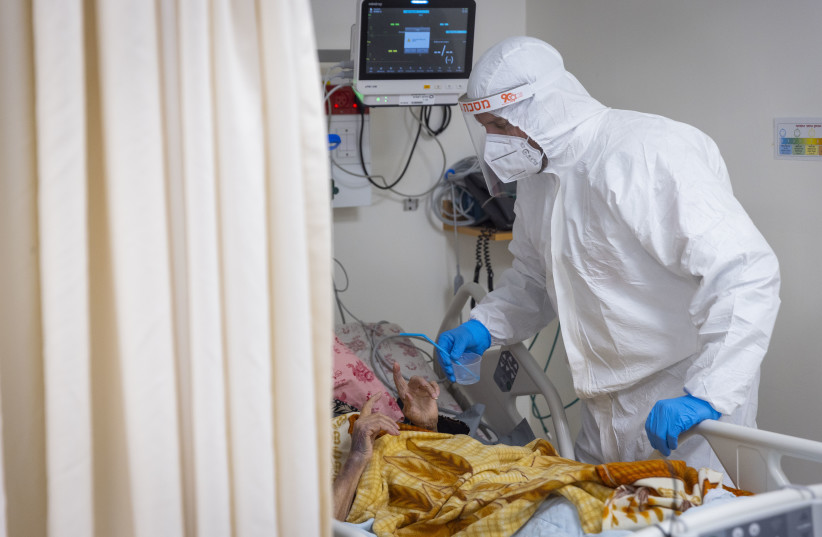Ivermectin is ineffective in preventing severe illness in COVID-19 patients, according to a new peer-reviewed study published in The Journal of the American Medical Association (JAMA) on Friday.
The open-label study examined 490 high-risk patients with COVID-19 at 20 public hospitals and a quarantine center in Malaysia. The patients were 50 years and older with confirmed SARS-CoV-2 infections, comorbidities and mild-to-moderate disease. The patients were split into a control group that received standard of care without Ivermectin and a group that received standard of care plus Ivermectin.
Researchers gave trial participants in the Ivermectin group a five-day course of the drug, consisting of 0.4mg/kg body weight each day.
Out of the trial participants, slightly more patients from the Ivermectin group (52) progressed to severe disease than those in the control group (43). Additionally, out of the 55 trial participants who experienced adverse events, 33 were from the Ivermectin group, while 11 were from the control group. Out of events identifies as Serious Adverse Events (SAE), four were from the Ivermectin group while only one was from the control group. Adverse events are events that take place while a person is being treated or taking part in a trial, but are not necessarily caused by the treatment administered.
In Malaysia, less than 5% of COVID-19 patients progress to a hypoxic state requiring oxygen supplementation, according to the study. The researchers noted that while molnupiravir and nirmatrelvir/ritonavir have been shown to be effective as early treatment of COVID-19, they can be too expensive for widespread use. Ivermectin, on the other hand, is inexpensive, easy-to-administer and widely available.

The researchers stressed that while some early clinical studies had suggested the potential efficacy of Ivermectin in the treatment and prevention of COVID-19, "these studies had methodological weaknesses."
An article by Argentinian and Chilean researchers that the study references in this regard stressed that the 5 µM required concentration to reach the anti-SARS-CoV-2 action of Ivermectin observed in "test-tube" studies is much higher than the 0.28 µM reached in the maximum reported concentration achieved in human studies with a dose of about 1700 µg/kg (about nine times the FDA-approved dose).
Two randomized clinical trials from Colombia and Argentina in 2021 and a Cochrane meta-analysis also found no significant effect of Ivermectin in treating and preventing severe illness. A recent meta-analysis of eight randomized clinical trials of Ivermectin to treat COVID-19 also showed that the drug had no significant effect on survival.
The researchers in the trial published on Friday stressed that they found "no evidence" that Ivermectin was effective in reducing the risk of severe illness. They added that the "notably higher" incidence of adverse events in the Ivermectin group "raises concerns about the use of this drug outside of trial settings and without medical supervision."
